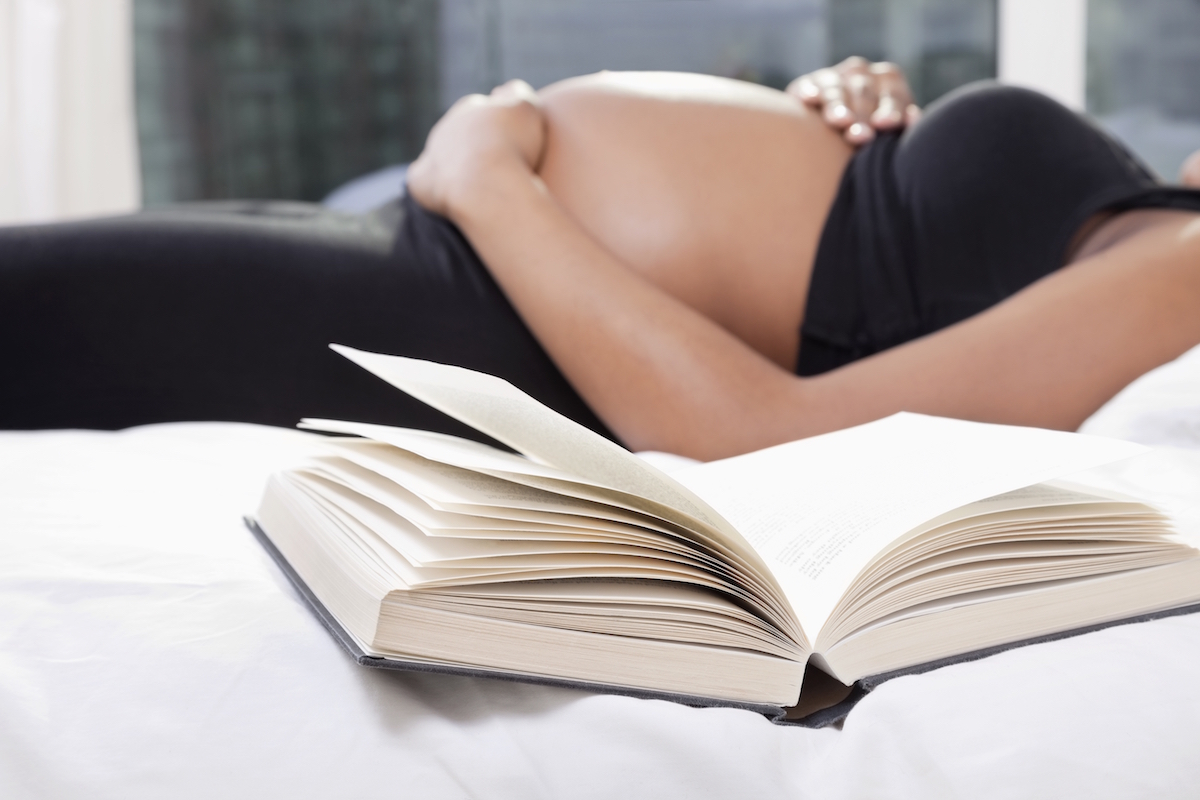For many women, the idea of being pregnant is often mixed. Many, especially first-time moms, are worried and even scared about the pain of delivery. Canadian Naturopathic Physician Dr Taylor Bean shares seven natural ways to help relieve labour pains and discomfort. These suggestions have no contraindications and are safe for the baby.
When I found out I was pregnant, I was elated to know I was having a baby but uneasy about the thought of actually giving birth. The more I thought about it, the more afraid I was becoming of the pain I might experience.
I also knew I wanted to give birth was naturally. So how was I going to get over my fear of pain and have a natural birth?
For many women, and perhaps yourself, having a natural birth is the preference. Yet it seems daunting.
In this two-part series 7 Natural Ways to Help Relieve Labour Pains I want to share with you what helped me get through a natural birth and how these areas have helped thousands of women to do the same.
① Hypnobirthing
This was the first suggestion my obstetrician gave me to help decrease pain during labour. So right from the beginning, I knew I had to try it.
The essence of Hypnobirthing is to teach you how to be calm and free of fear during labour. I have to admit, after doing the course, I was truly inviting my labour to start. Or, I was just fed up being pregnant. Either way, I was ready.
Now, you must be thinking, how does Hypnobirthing teach me to be calm during birth?
When you are fearful or anxious, your body can tighten and tense up. As a result, during your labour, you can be going against your body rather than working with it. If you learn how to be calm, you in turn allow your body to relax, be loose, and release a balanced amount of hormones that will synergistically work together during labour.
Through a series of classes, you learn visualization techniques, about how language can alter your perceptions, and using your voice, all of which can help you achieve a calm mind, which means a calm body.
As one of the most profound midwives, Ina May Gaskin, put it, in times of fear, think of your cervix as a sphincter. When you are tense, your cervix will tighten, making birthing much more difficult and painful.
This may physiologically happen or may be a metaphoric description but either way, Hypnotherapy has adapted this idea and helped pregnant women learn how to work with their body and relax, from the inside out.
Hypnobirthing not only taught me how to get over my fear of birthing, but also how I need to surrender to the labouring experience. As a person who likes to be in control, I had never thought about how my personality may make giving birth more difficult. I was cognizant of this while I was in active labour and especially as my body began to push. I took a step back and allowed for nature to take control. The end result was a manageable natural birth.
② Hire a Doula
For first-time moms, having a doula can really be the help you need during pinnacle moments of your labour. To have a trained professional in the room who is there to strictly support your needs can really help decrease your anxiety (or even your husband’s).
A meta-analysis of 11 randomized control trials examined women under the care of doulas and midwives and observed how their care affected outcomes. A reduction was found in the duration of labour, medications for pain relief, operative vaginal delivery, and caesarian deliveries.
If you are considering hiring a doula, there are some questions you may want to ask yourself when you interview her. I recommend meeting with a few different doulas so you can gauge your connection. A couple of things to think about when you meet her are:
- Do you feel relaxed when you are around her?
- Does she listen to you?
- Do you feel safe around her?
- Does she have a warm, nurturing personality?
- Would you feel comfortable expressing your fears and desires about birthing with her?
- Do you think she would respect and protect your wishes and hopes for the birth?
- If you do have a long labour, can you see yourself spending up to 24-36 hours with this woman while you are in labor?
Doulas provide flexible and continuous support before, during, and after birth. The doulas I interviewed here in Singapore all provided two prenatal and two postnatal visits and would be present during the entire birth. I found the postnatal visits extremely helpful as I needed a bit of help with breastfeeding.
Overall, hiring a doula has greatly reduced postpartum depression, provided invaluable support, and gave that extra care moms are looking for.
③ Physical Touch
Several studies have shown that touch, in the form of massage, holding or light caressing, has helped women during labour and postpartum. For those who received touch during labour reported less anxiety, shorter labours, shorter hospital stays, and less postpartum depression.
In Part 2 of this series 7 Natural Ways to Help Relieve Labour Pains , I will be covering how the freedom to move, water, Acupuncture, and Homeopathy play vital roles in reducing discomfort during labour.
Resources
MH Klaus and JH Kennell. The Doula: An Essential Ingredient of Childbirth Rediscovered? 21 January 2008. August 31, 14
Penny Simkin PT and April Bolding PT. Update on Nonpharmacologic Approaches to Relieve Labor Pain and Prevent Suffering. Journal of Midwifery and Women’s Health. Volume 49, Issue 6, pages 489–504, November-December 2004
http://www.spiritualbirth.net/positions-for-labour-and-birth. September 5th, 2014
Gaskin IM. Ina May’s Guide to Childbirth. New York: Bantam Dell, Random House, 2003.
http://onlinelibrary.wiley.com/doi/10.1111/j.1651-2227.1997.tb14800.x/abstract. August 31, 14
T. Field, M. Hemandez-Reif, S. Taylor, O. Quintino and . Burman. Labour Pain is Reduced by Massage Therapy. Journal of Psychosomatic Obsetrics & Gynecology . August 31, 14










